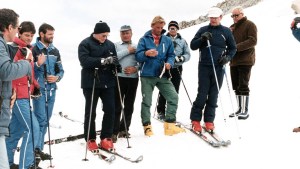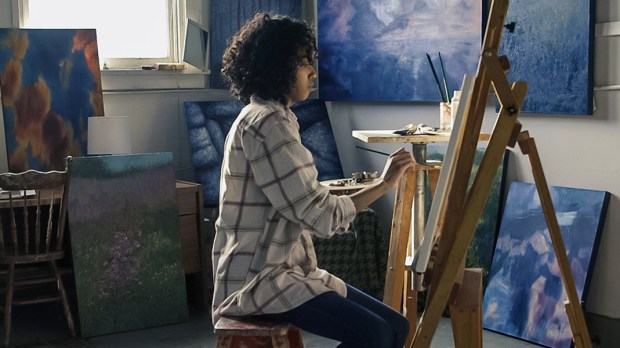Lenten Campaign 2025
This content is free of charge, as are all our articles.
Support us with a donation that is tax-deductible and enable us to continue to reach millions of readers.
Emily Dickinson, the world famous poet, was virtually unknown during her lifetime. It’s not just that her poems weren’t published and that few people knew she had writing talent; when I say she was unknown, I mean she never left her room.
As a young woman, Emily went to school, spent time with friends, and even traveled a bit. As she entered middle-age, though, she became more and more reclusive. She began wearing only white clothing, never left the family home where she lived with her sister, and when a guest came to visit she would retreat to her bedroom until they left. She would leave the door open a crack to eavesdrop, but that was about it. The people of Amherst, where the Dickinsons had lived for generations, were aware that she existed, but they knew her mostly as a legend. She was the eccentric woman in the big house.
Even though Emily lived her quiet life in a small space, her inner life was very large. She kept up a lively correspondence with friends near and far, often sending them poetry and intensely emotional thoughts. She was an expert gardener with a vast array of knowledge about plants. She loved her family deeply and stayed engaged with all their comings and goings. After her death, her sister Lavinia and a family friend finally managed to publish a selection of her poetry, and the poems lit the world on fire. They were an immediate success, and today the name of Emily Dickinson is synonymous with artistic greatness. Her poems are studied and widely admired for their concentration of language and the vividness of her poetic vision. Her hidden talent didn’t stay hidden forever.
There are many other stories like hers. St. Therese, called the Little Flower, lived a hidden life in a religious convent and died at a young age from tuberculosis. She was known only by the other women in her convent, and even within that small social group she was considered unremarkable. In fact, as she lay dying, she overheard two nuns wondering what the mother superior would find to say about her in the obituary because she had accomplished nothing remarkable. But then, after her death, her short autobiography became available. She had written it during her illness at the request of the mother superior and it revealed a simple but profound spirituality. Her Story of a Soulcontinues to be influential to this very day.
Vincent Van Gogh sold only a few paintings during his lifetime. The rest of his work was stored up by his brother, Theo. No one was interested in his art and he spent his entire life unappreciated. He had few friends, was considered mentally ill, and died of a mysterious gunshot wound acquired while painting in a wheat field. His paintings were only beginning to gain recognition at the time of his death.
Gerard Manley Hopkins, the Jesuit priest who seemed like a harmlessly eccentric failure during his lifetime – he was the sort of person who would get on his knees and stare at a bug – was after his death revealed to be a poet of enormous talent. His fellow Jesuits would laugh at him as the odd fellow they didn’t quite know what to do with. The whole time, however, it turns out he was nurturing a secret, gorgeous vision of the world. Reading his poetry was highly influential on my own decision to become Catholic, and I know that his work is held dear by many others. In fact, I currently do editorial work at a magazine called Dappled Things, a phrase directly quoted from one of Hopkins’s poems.
I’m sure I could continue to list the stories of people who nurtured hidden talents. I just listed a few who gained fame after their death, but it seems to me that there are many other secret heroes, probably as many people as who have lived. Each one of us has value, gifts, and hidden talents. It isn’t just artistic talent or a thing you do, it may be a part of who you are, a particular quality of kindness or generosity, commitment to family, faithfulness in prayer, willingness to quietly suffer for others. Other people may not notice it, but don’t let that discourage you.
What’s your hidden talent? It’s valuable as an expression of who you are. Fame doesn’t matter as much as we think it does, and success isn’t measured the way we think it is. Our hidden talents are practiced quietly for sheer love. Maybe they will someday change the world in a very noticeable way, but much more importantly our existence will still have changed the world for better or worse. I say we strive to make it for the better. Nurture those talents, add beauty to the world, and leave behind a lasting legacy.

Read more:
5 Saints who were talented athletes

Read more:
The truth about “naturally talented” people

